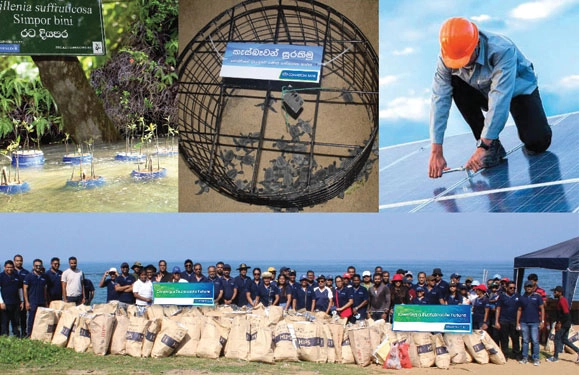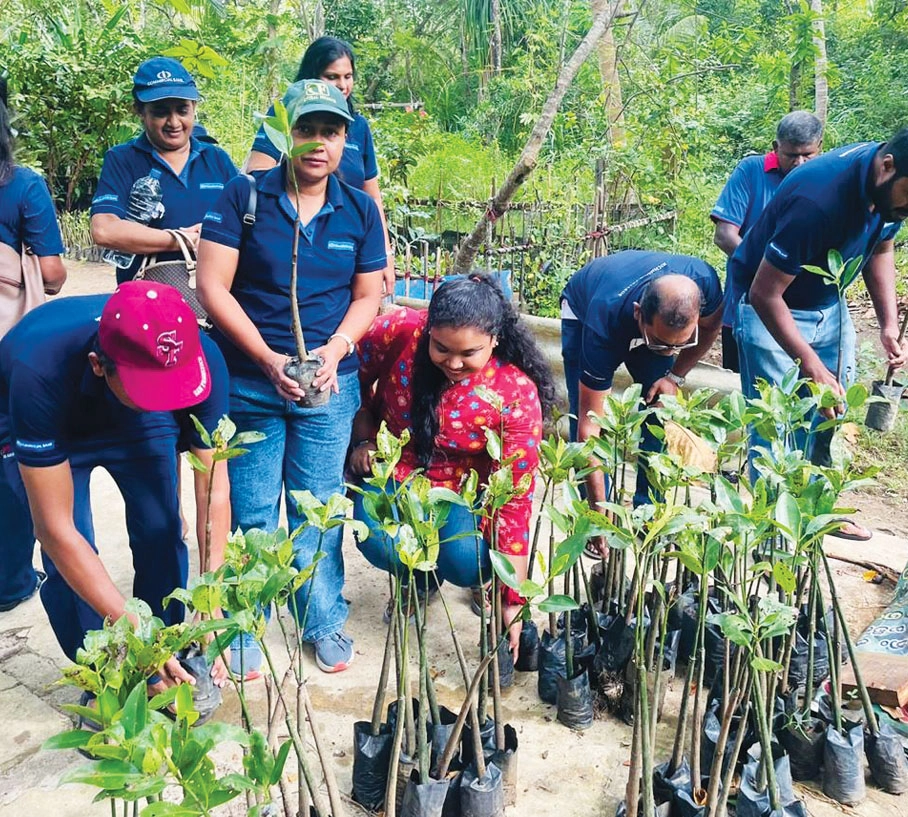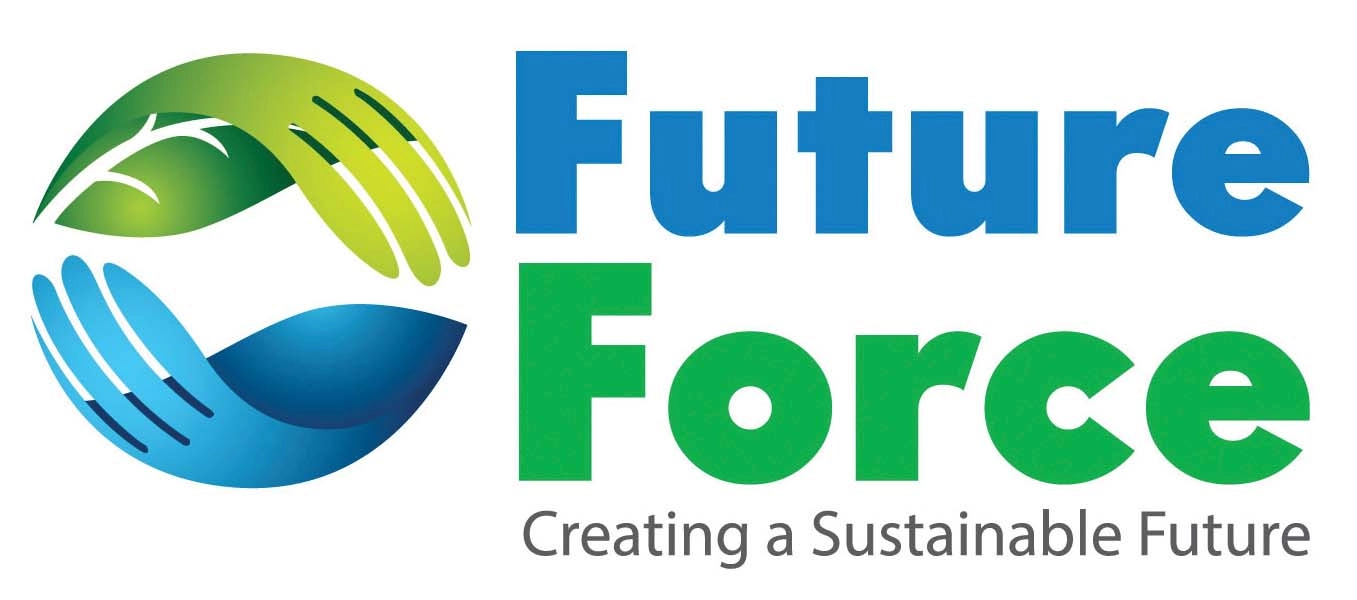-
INTEGRATED REPORT
INTEGRATED
REPORT
As permitted by the International
Framework, this Annual Report features a dedicated Integrated Report section, followed by Financial Statements and Supplementary Information. Structured per the Framework’s guiding principles and content elements, it provides a balanced view of our value creation process. As affirmed in the Annual Report of the Board of Directors on page 4, due diligence has been exercised to ensure its integrity, accuracy, and relevance to all stakeholders. 
-
FINANCIAL STATEMENTS
FINANCIAL
STATEMENTS
The Financial Statements, including Accounting Policies and notes, fully comply with relevant Accounting Standards, providing a true and fair view of the Bank’s performance, financial position, equity changes, and cash flows. As confirmed in the Auditor’s Report, they are free from material misstatements. The Independent Auditor’s Report affirms an unmodified opinion on these Financial Statements.

-
SUPPLEMENTARY INFORMATION
SUPPLEMENTARY
INFORMATION
This section provides supplementary disclosures enhancing the Bank’s financial and non-financial reporting. It includes governance, compliance, sustainability disclosures, assurance reports, and key financial data, ensuring transparency and accountability. These annexures offer stakeholders insights aligned with best practices.

- Annex 1: Compliance with Governance Directions, Rules and Codes
- Annex 2: Basel III – Disclosures under Pillar III as per the Banking Act Direction No. 01 of 2016
- Annex 3: GRI Content Index
- Annex 4: Our Sustainability Footprint
- Annex 5: Disclosures Relating to Sustainability Accounting Standard for Commercial Banks
- Annex 6: Independent Assurance Reports
- Annex 7: The Bank’s Organisation Structure
- Annex 8: Financial Statements (US Dollars)
- Annex 9: Correspondent Banks and Agent Network
- Annex 10: Glossary of Financial and Banking Terms
- Annex 11: Acronyms and Abbreviations
- Annex 12: Alphabetical Index
- Annex 13: Index of Figures, Tables and Graphs
- Notice of Meeting – 56th Annual General Meeting
- Circular to the Shareholders on the First and Final Dividend for 2024
- Notice of Meeting – Extraordinary General Meeting
- Circular to Shareholders Pertaining to the Proposed Issue of Debentures
- Stakeholder Feedback Form
- Corporate Information


Integrated Report
Management discussion and analysis

Responsible organisation
Managing Director/Chief Executive Officer's and Chief Financial Officer's Statement of Responsibility
Independent Assurance Report - Internal Control
Fostering ethical governance and sustainable practices Figure – 31
Responsibility as a core principle
At Commercial Bank, responsibility transcends regulatory compliance; it is embedded in our corporate DNA, guiding our operations, governance, and interactions with all stakeholders. As a responsible organisation, we are committed to ethical conduct, robust governance frameworks, and sustainable practices that create long-term value for both the society and the environment.
Upholding ethical governance
We view good corporate governance as a collective responsibility, one that underpins financial integrity, stakeholder trust, and sustainable growth. By adhering to the highest ethical standards, including a stringent Code of Ethics and the Group Conduct Risk Management Policy Framework, we ensure transparency, accountability, and fairness in all our dealings. Our governance practices encompass key elements such as anti-bribery and anti-corruption measures, conflict-of-interest management, and insider dealing prevention, all of which reflect our steadfast dedication to ethical banking.
Leading environmental responsibility
As part of our sustainability journey, we place a strong emphasis on environmental responsibility. Having achieved the distinction of becoming Sri Lanka’s first carbon-neutral bank in 2020, we remain steadfast in our goal to achieve self-sustained carbon neutrality by 2030. This commitment is manifested in our proactive environmental initiatives aimed at reducing our carbon footprint and promoting cleaner, greener operations across all touchpoints.
Green and safe workplace
Beyond environmental stewardship, our focus on a Green & Safe Workplace demonstrates our dedication to fostering a supportive and secure work environment. We promote employee well-being through health and safety programs, continuous learning, and skill development, ensuring that our workforce is equipped to thrive in a dynamic, evolving banking landscape. Furthermore, we actively champion diversity, equity, and inclusion, recognising that a varied workforce enhances creativity, innovation, and decision-making.
Driving sustainability across the value chain
In line with our commitment to sustainability across the value chain, we have integrated sustainable procurement practices into our operations, promoting ethical sourcing and encouraging our suppliers to adopt sustainable business models. By embedding sustainability throughout our supply chain, we aim to create a ripple effect, extending our positive impact beyond the boundaries of our organisation.
Proactive risk management
Risk management remains a pivotal component of our responsible organisational ethos. Through rigorous risk assessment frameworks and a culture of continuous oversight, we proactively manage financial and operational risks, ensuring that our growth trajectory remains sustainable and resilient. Our well-established governance mechanisms, including multiple Management and Board-level committees, enable us to identify, assess, and mitigate risks in a timely and effective manner.
Collaborative stakeholder engagement
The Bank’s commitment to being a responsible organisation is further reflected in our proactive engagement with external stakeholders. Whether through collaborative partnerships, industry forums, or sustainability initiatives, we actively contribute to shaping a more responsible and inclusive financial ecosystem.
Elements of Responsible Organisation Figure – 32
Responsible organisation
Green and safe workplace
Stakeholders
engaged
Employees
Government institutions and regulations
Capitals
addressed
Human capital
Manufactured capital
Responsible organisation
Workplace culture
Stakeholders
engaged
Employees
Capitals
addressed
Human capital
Intellectual capital
Responsible organisation
Sustainable supply chain
Stakeholders
engaged
Business Partners
Capitals
addressed
Social and relationship capital
Manufactured capital
Moving forward
As we move forward, our unwavering dedication to being a responsible organisation will continue to guide our strategies, operations, and engagements. By upholding the highest standards of governance, ethical conduct, and sustainability, we remain well-positioned to navigate emerging challenges and seize opportunities, delivering sustainable value to all our stakeholders.
Green and safe workplace
Nurturing a sustainable and secure environment for growth and innovation
At Commercial Bank, our commitment to being a responsible organisation is deeply embedded in our operational philosophy. As part of this commitment, we aim to create a Green and Safe Workplace that not only promotes environmental sustainability but also prioritises the well-being of employees, customers, and other stakeholders. This section outlines our key initiatives in environmental stewardship, carbon neutrality, renewable energy adoption, and energy efficiency.
Environmental stewardship & carbon neutrality
Our journey towards environmental sustainability is driven by a strong commitment to environmental stewardship and achieving carbon neutrality. Through innovative strategies, renewable energy adoption, and green infrastructure initiatives, we continue to make significant strides in minimising our environmental footprint.
As Sri Lanka’s first carbon-neutral bank since 2020, we have remained at the forefront of sustainable banking, continuously enhancing our efforts to reduce greenhouse gas (GHG) emissions. In 2024, the Bank achieved a 8,337 GJ savings in Grid Power Energy consumption due to integration of renewable energy solutions.
To address emissions that cannot be directly eliminated, we have invested in high-quality, certified carbon credits, supporting global and local environmental projects such as renewable energy development and mangrove restoration, which serve as natural carbon sinks.
Looking ahead, the Bank remains dedicated to achieve self sustained carbon neutrality by 2030 aligning with the Paris agreement. In 2024, the Bank partnered with the PCAF to assess the financed emissions of its lending portfolio, a critical step in facilitating the adoption of SLFRS S1 and SLFRS S2. This collaboration enabled the Bank to measure and report greenhouse gas emissions associated with its financial activities. The initiative was integral to the Bank's ongoing Climate Transition Plan, which aims to reduce its carbon footprint, support clients in transitioning to low-carbon models, and contribute to global climate goals. By continuously refining our sustainability initiatives, we reaffirm our role as a leader in environmental stewardship, ensuring a greener and more resilient future for all.
Climate Transition Plan and Carbon Neutrality
In alignment with its commitment to environmental stewardship and global climate goals, the Bank has made significant advancements in its Climate Transition Plan and journey towards carbon neutrality.
These initiatives form a critical component of the Bank’s broader sustainability strategy, reflecting its dedication to reducing its environmental footprint while enabling a sustainable future for stakeholders
Partnership with IFC: A climate transition roadmap
In 2024 the Bank collaborated with the IFC to develop a comprehensive Climate Transition Plan. This plan will be a structured roadmap designed to achieve Net Zero emissions by 2050 and align with the Paris Agreement and global best practices.
Long-term vision and global alignment
The Bank’s Climate Transition Plan and carbon neutrality efforts demonstrate its proactive approach to addressing climate risks and contributing to global climate goals. By embedding sustainability into its operations, financing, and stakeholder engagements, the Bank is not only mitigating its environmental impact but also positioning itself as a leader in Sri Lanka’s transition to a low-carbon economy.
Through its partnership with the IFC and unwavering commitment to innovation and accountability, the Bank is laying a strong foundation for sustainable growth, ensuring that its journey toward Net Zero emissions benefits the environment, economy, and society at large.
Climate position statement
The Bank’s Climate Position Statement reaffirms its leadership and unwavering commitment to addressing climate challenges. By pledging to integrate climate considerations into operations, financing decisions, and community initiatives, the Bank aims to embed sustainability into every facet of its business. Collaboration with regulators, businesses, and communities remains a cornerstone of this strategy, promoting sustainable practices through green industry financing and renewable energy projects. Furthermore, the Bank aligns its climate strategy with global frameworks, including the SDGs and the Climate Transition Plan under development with the IFC, ensuring its efforts contribute meaningfully to global climate action.
Euromoney declares ComBank “Sri Lanka’s Best Bank for ESG”

The Bank was proclaimed ‘Sri Lanka’s Best Bank for ESG’ at the 2024 edition of the Euromoney Awards for Excellence, generating international recognition for the Bank’s commitment to Environmental, Social and Governance (ESG) frameworks.
The Euromoney Awards for Excellence are highly respected in the global banking industry, and represent the pinnacle of achievement for banks and bankers that set the standards in the Banking field around the world.
Climate position statement of Commercial Bank of Ceylon PLC Figure – 33
Commercial Bank of Ceylon PLC is the leading private bank in Sri Lanka. It also provides Banking and Financial Services to South Asian Countries. The Bank firmly believes that;
Natural resources are finite and need to be used sustainably
The transition to a low-carbon economy is essential and systematic transition does not only bring substantial benefits to the planet earth but lead to business and economic growth opportunities
It is imperative that global warming is limited to well below 2 Degrees Celsius and pursue efforts to limit to 1.5 Degrees Celsius compared to pre-industrial level, as committed to the Paris Pledge for Action
The main geographic locations that the Bank operates; Sri Lanka, Bangladesh, Maldives and Myanmar are nations with ambitious National Determined Contributions to limit the Greenhouse Gas (GHG) Emission for climate change mitigation. The Bank has duly identified its role in providing financial support to its customers in mitigating climate change effects through Climate Financing.
Even with the current levels of GHG Emission in the atmosphere, changes in the climate are likely and will impose serious consequences to many sectors in the economies. Adaptive actions are therefore necessary in addition to the efforts made to mitigate climate change. Further, Asia is regularly identified as one of the regions hardest hit by climate change. Hence, adaptation to effects of climate change through support to
climate resilient agriculture, water resources management and disaster risk management, etc. are priorities. Accordingly, the Bank assesses climate risks and opportunities associated with banking activities and integrate climate adaptation considerations to the Banking Operations, as well as to its product and service offerings. Climate Financing is a subset of the Bank’s broader Green Financing commitment to positively contribute towards safeguarding the environment. Our Green Financing Strategy, reinforces the commitment to integrate climate change mitigation and adaptation actions and environment safeguard factors into its business strategies, risk management and governance.
Our desire is to align our operations towards NetZero by 2050, supported by a climate transition plan.
Core focus areas of the climate transition plan Figure – 34
Setting up the foundations for transition plan development

- Establish baseline for Financed Emissions (Scope 3)
- Analyze the Bank’s portfolio to identify high carbon-emitting sectors.
- Assess portfolio alignment with national climate goals
- Develop high-level transition plan for net zero objectives
Accelerating green finance and expansion to blue finance

- Baseline for green finance and target setting
- Development of new Green Finance Products
- Identification of credit exposure to carbon intensive assets
Capacity Building for climate risk management

- Provide guidance in integration of climate risks in overall risk governance and management strategy and relevant procedures
- Identify significant credit exposure to carbon intensive assets/ climate transition risk and/or physical risks
- Assess impact of climate risks on the Bank
- Build internal capacity to manage climate risk
Renewable energy adoption
As part of its commitment to sustainable energy solutions, the Bank has continued to expand its renewable energy footprint, integrating solar power into its operations. In 2024, the Bank installed solar photovoltaic (PV) systems at seven additional branch locations, bringing the total number of solar-powered branches to 89. This initiative now generates approximately 3,465 MWh of clean energy annually, reducing reliance on conventional energy sources and minimising the Bank’s carbon footprint. By integrating clean energy solutions, the Bank reinforces its dedication to environmental responsibility, aligning with global efforts to promote renewable energy adoption and carbon footprint reduction.
To further enhance energy efficiency, the Bank conducted comprehensive energy audits across all its branches, identifying new opportunities for solar energy expansion. These audits serve as a strategic tool to guide future renewable energy transitions, ensuring that more facilities adopt sustainable power sources in the coming years.
Power generated through renewable sources Table – 15
| As at December 31, | 2024 | 2023 | 2022 | 2021 | 2020 |
| Total number of branches connected with on-grid solar power generation | 89 | 82 | 71 | 66 | 60 |
Utility power consumption and GHG emissions Table – 16
| For the year ended December 31, | 2024 | 2023 | 2022 | 2021 | 2020 |
| Total utility power (CEB/LECO) consumption (Gigajoules) | 48,129 | 46,971 | 38,416 | 42,906 | 45,045 |
| Increase/(decrease) in utility power consumption (Gigajoules) | 1,158 | 8,555 | (4,490) | (2,139) | (5,251) |
| Direct (Scope 1) GHG emissions (CO2 Tonnes) | Pending | 868 | 1,880 | 1,203 | 1,079 |
| Energy indirect (Scope 2) GHG emissions (CO2 Tonnes) | Pending | 5,586 | 6,496 | 7,144 | 8,413 |
| Solar power generated (Gigajoules) | 8,337 | 7,556 | 5,796 | 1,008 | 72 |
| Solar power generated as a % of utility power consumption | 17.32 | 16.09 | 15.09 | 2.35 | 0.16 |
Solar power generation
by the Bank
Total solar generation capacity
2,406 kw
Total generation per day (estimated)
9,625 kwh
Total solar generation
per month (estimated)
288,739 kwh
Total savings per month
Rs. 11 Mn.
Energy efficiency and carbon footprint reduction
The Bank has implemented a series of operational optimisations to enhance its environmental efficiency and reduce its carbon footprint. Energy-efficient lighting systems, including the retrofitting of LED solutions across all of branches, significantly reduced electricity consumption. Similarly, upgrading HVAC systems to inverter-based models not only improved energy efficiency but also maintained optimal comfort for employees and customers.
The Bank also prioritised the greening of its data centers by adopting virtualisation technology and energy-efficient servers, achieving a reduction in energy intensity. Complementing these efforts, paperless operations gained momentum with increased adoption of digital transactions, e-statements, and online banking services. These initiatives collectively reduced paper usage by 11% in 2024, underscoring the Bank’s commitment to resource conservation and sustainable practices.
Green infrastructure
The Bank has embraced green building standards to reinforce its commitment to environmental sustainability. All newly constructed branches follow the guidelines issued by the Green Building Council of Sri Lanka, emphasising energy and water efficiency, natural ventilation, and the use of sustainable materials. Additionally, older branches were retrofitted to meet modern sustainability standards, incorporating measures such as improved insulation and energy-saving devices to enhance resource efficiency.
Through these initiatives, the Bank underscores its leadership in sustainability within the financial sector. By prioritising carbon neutrality, renewable energy adoption, and resource-efficient operations, the Bank reduced its environmental footprint and set a benchmark for other institutions. Its steadfast mission remains focused on creating a greener, safer, and more resilient workplace for all stakeholders.
Resource efficiency & responsible consumption
The Bank prioritises resource efficiency and responsible consumption as part of its commitment to sustainability and operational excellence. By embedding environmentally-conscious practices into its daily operations, the Bank ensures the efficient use of resources such as water, paper, and energy while minimising waste. These efforts align with our broader sustainability goals, contributing to a greener, more resilient future for both the Bank and its stakeholders.
Sustainable resource management
The Bank adopts a comprehensive approach to resource management, prioritising conscious use and efficiency across its operations. Robust measures are in place to minimise reliance on finite resources like water and energy, supported by innovative technologies that optimise consumption patterns. This approach extends across operational processes, integrating energy audits at branches and fostering eco-conscious behaviours among employees and customers alike.
Advanced resource tracking systems allow the Bank to monitor consumption, identify inefficiencies, and implement improvements. By embedding resource management into its core practices, the Bank ensures long-term sustainability, reinforcing its commitment to environmental responsibility.
Digital transformation for sustainability
In its commitment to sustainability and operational efficiency, the Bank has embraced a paperless approach as a cornerstone of its digital transformation journey. By leveraging advanced technologies and promoting digital adoption among customers, employees, business partners, and investors, the Bank has successfully minimised its reliance on paper-based processes. These initiatives have contributed to environmental conservation and enhanced convenience, streamline workflows, and reduce administrative costs, setting a benchmark for eco-friendly banking practices.
- Paperless operations – The Bank’s digital transformation initiatives have significantly reduced paper consumption, with expanded services such as:
- Enhanced Digital Banking Services: The introduction of advanced digital banking solutions has significantly reduced the need for paper-intensive branch visits. In 2024, over 90% of transactions were conducted digitally, reflecting the growing adoption of online banking. Customers can now open and redeem fixed deposits, apply for loan facilities against fixed deposits, and manage their finances seamlessly through digital platforms, enhancing convenience and efficiency.
- E-statements: The Bank encourages customers to opt for electronic statements.
- Employee participation – Internally, the Bank promotes digital workflows and document management systems, eliminating physical file storage and encouraging the use of shared digital platforms.
- Business partners – The Bank launched a digital platform for e-tendering for its procurements in 2024 and more than 60% of the newly on-boarded business partners got registered on the platform by end 2024. The Bank targets to onboard all the business partners on to this platform by end 2025. In addition, a significant portion of supplier payments are now processed online. Plans are underway to make all supplier payments online in the coming years.
- Investors – With the transcending of medium of investor communication, vast majority of the shareholders now receive financial communications through digital channels.
- Impact metrics – The adoption of digital processes resulted in a reduction in administrative paper consumption, contributing to both environmental and operational benefits.
Water management
The Bank has launched targeted programs to reduce water usage across its branches, promoting sustainable operations. Notably, in-line water supply systems were installed in a few selected locations in the Bank as a pilot project to provide drinking water. This initiative eliminates the operational challenges associated with bottled water while ensuring water quality, which was validated by a third-party assessment. The system has been highly successful, delivering both operational efficiency and environmental benefits, and will be rolled out across the Bank in a phased approach in 2025. Future plans include expanding water recycling initiatives to further enhance resource sustainability. Additionally, the Bank supports water conservation projects such as rainwater harvesting, in underserved communities, contributing to national water sustainability goals.
Waste reduction programs
The Bank’s unwavering commitment to sustainability is exemplified by its innovative waste management programs, which aim to minimise environmental impact and foster a culture of responsibility among employees and stakeholders. Through initiatives like the “Zero Trash” program and composting efforts, the Bank has established a holistic approach to waste reduction, promoting recycling, eliminating single-use plastics, and responsibly managing electronic waste. These measures contribute to a cleaner environment and reflect the Bank’s leadership in driving sustainable practices within the financial sector.
- “Zero Trash” Initiative
– As part of its efforts to eliminate waste, the Bank continued the Zero Trash Initiative in 2024, which encourages waste segregation and recycling across branches.
- Branch-level recycling hubs: Recycling facilities were established in branches, enabling employees and customers to dispose of waste responsibly.
- Plastic-free policy: The Bank phased out single-use plastics in cafeterias and workspaces, replacing them with sustainable alternatives.
- E-waste management: Discarded electronic equipment, such as computers and servers, is responsibly recycled through certified e-waste recyclers.
Sustainability training
To cultivate a culture of sustainability, the Bank places significant emphasis on empowering its employees as drivers of change. Regular training programs educate staff on energy-saving practices, waste reduction, and the adoption of digital solutions for eco-friendly operations. Employees are further encouraged to become Green Ambassadors, championing initiatives such as tree planting, recycling drives, and resource conservation within their branches and communities. Through knowledge-sharing platforms, workshops, and internal campaigns, the Bank equips its workforce with the tools to implement sustainable practices, fostering environmental responsibility both at work and beyond.
Plans for years ahead
As the Bank looks ahead, it remains committed to scaling these initiatives and introducing innovative solutions that further minimise its environmental footprint. By integrating sustainability into every aspect of its operations, the Bank sets a precedent for responsible resource use, ensuring long-term value for its stakeholders and the planet.
Creating a safe & engaged workplace
Fostering a safe and engaged workplace is central to the Bank’s commitment to employee well-being and productivity. The Bank prioritises a healthy, secure, and inclusive environment that supports physical, mental, and emotional wellness, while encouraging a sense of belonging and active participation among its employees. Through comprehensive policies, programs, and strategic measures, we aim to ensure that our workforce is empowered, motivated, and protected.
Employee health and safety
The Bank prioritises workplace safety through robust policies, regular audits, and proactive protective measures, ensuring a secure and healthy environment for all employees. This commitment is reflected in the following key initiatives;
- Comprehensive policies – The Bank maintains robust occupational health and safety policies that adhere to local and international standards, ensuring compliance across all branches and facilities. These policies are regularly reviewed and updated to address emerging risks and incorporate best practices.
- Monitoring and reporting – Occupational health and safety audits are conducted annually to identify and mitigate workplace hazards. Detailed reporting mechanisms enable the Bank to track and address incidents promptly.
- Protective measures – Safety equipment and measures, including ergonomic furniture and protective gear, are provided to employees as part of creating a safe work environment.
Work-life balance
The Bank fosters employee well-being through wellness programs, flexible work arrangements, and comprehensive mental health support, promoting a balanced and healthy work environment, as detailed below:
- Wellness programs – Recognising the importance of holistic employee wellness, the Bank conducts regular health and fitness programs, including yoga sessions, stress management workshops, and nutrition counseling. These initiatives foster a culture of health-consciousness and self care.
- Flexible work arrangements– Employees are supported with hybrid work models, flexible working hours, and leave policies that allow them to balance personal and professional responsibilities effectively.
- Mental health support– Dedicated mental health resources, including counseling services and stress management programs, ensure that employees have access to the support they need to maintain emotional well-being.
Safety preparedness
Ensuring a safe and secure workplace is a top priority for the Bank, with the following proactive measures in place to foster a culture of vigilance, preparedness, and accountability and prepare employees for potential emergencies.
- Safety drills – Regular fire drills, evacuation exercises, and emergency response simulations are conducted across branches to prepare employees for unforeseen events. These drills enhance employee awareness and readiness in crisis situations.
- Emergency response training – Specialised training sessions equip employees with the skills needed to handle medical emergencies, natural disasters, and workplace incidents effectively. Topics include first aid, fire safety, and crisis management.
- Safety awareness campaigns – Interactive workshops and campaigns educate employees about workplace safety practices, fostering a culture of vigilance and accountability.
Impact and future direction
In 2024, the Bank’s initiatives to create a safe and engaged workplace led to significant outcomes, including absence of any workplace incidents, increased employee participation in wellness programs with over 18% of staff actively involved, and improved crisis readiness, as demonstrated by positive feedback from safety drills and emergency simulations.
Looking ahead, the Bank remains committed to advancing workplace safety and engagement by leveraging cutting-edge technologies, fostering innovation, and prioritising employee well-being. These efforts solidify the Bank’s position as a trusted and preferred employer, delivering enduring value to employees, customers, and other stakeholders.
Fostering a green culture
At the Bank, fostering a green culture is integral to our commitment to environmental sustainability and organisational resilience. By embedding sustainability into our workplace ethos, we empower employees to be active contributors to our green agenda. Through targeted initiatives, rewards, and a sustainability-driven approach to human resource practices, the Bank ensures that employees are both inspired and equipped to champion environmental stewardship.
Recognising sustainability achievements
The Bank is committed to fostering a culture of sustainability by recognising and rewarding employee-driven environmental initiatives. Through structured incentives, employee-led projects, and celebratory events, the Bank encourages innovation and collective action towards achieving its sustainability goals. The initiatives given below not only motivate teams to adopt greener practices but also provide a platform to showcase their contributions, reinforcing a shared commitment to environmental stewardship.
- Incentives for sustainable contributions – The Bank actively recognises employees who make exceptional contributions to sustainability. Through awards such as the Best Sustainable Branch and Department Awards, branches are motivated to implement and innovate green initiatives that align with the Bank’s sustainability goals.
- Employee-led projects – Employees are encouraged to propose and lead sustainability-focused projects, with outstanding initiatives highlighted in internal and external communications to showcase their impact.
- Celebratory recognition events – Sustainability achievements are celebrated during key events such as the annual awards ceremony and Earth Day celebrations, further fostering a sense of accomplishment and community around environmental goals
Best Sustainability Department/Branch Award

Stand out and be recognised as a leader in Sustainability within the Bank.
“Best Sustainable Branch and Department of the year” Award Figure – 35
Objectives & goals

Recognise and commend the outstanding efforts of the Bank’s branches and departments
Promoting sustainability within the organisation and reducing our environmental impact
Inspire and motivate those within the organisation to become more sustainable
Award categories
BRANCHES
DEPARTMENTS
Evaluation criteria
Sustainable performance:
This criterion assesses the overall performance of the branch or department in incorporating sustainable practices into its day to-day operations. This includes factors such as energy efficiency, waste reduction and adherence to sustainability guidelines.
Sustainable innovations:
Recognising the importance of innovation in sustainability, this criterion evaluates the implementation of creative and novel solutions that contribute to environmental conservation and sustainable development.
Sustainable behaviour:
Acknowledging that sustainable practices require a cultural shift, this criterion focuses on the behavioural aspects of teams. It assesses how well the team has embraced and integrated sustainable behaviours into their work ethics.
Sustainable projects:
This criterion highlights the initiation and execution of sustainable projects by the branch or department. Projects that demonstrate a positive impact on the environment, community, or internal processes are particularly valued.
Innovation encouragement
The Bank fosters a culture of innovation by encouraging employees to contribute creative solutions towards sustainability. Through structured challenges, incubation programs, and collaborative platforms, employees are empowered to develop and implement impactful green initiatives. By providing mentorship, resources, and opportunities for cross-departmental teamwork as detailed below, the Bank ensures that sustainability-driven innovation remains an integral part of its strategic agenda.
- Green innovation challenges – To inspire creative solutions to environmental challenges, the Bank organises innovation competitions where employees can present ideas for reducing resource consumption, enhancing energy efficiency, or promoting sustainable banking
- Idea incubation programs – Promising innovations from employees are supported through mentorship, resources, and funding to bring their ideas to fruition. Successful projects are integrated into the Bank’s sustainability framework.
- Cross-departmental collaboration – Initiatives such as brainstorming sessions and sustainability hackathons encourage employees from diverse departments to collaborate and share knowledge, driving innovative solutions for green practices.
Sustainability in HR practices
The Bank has embedded sustainability into its human resource practices to cultivate a workforce that actively contributes to environmental goals, as elaborated below. By integrating sustainability into performance evaluations, goal-setting, and onboarding programs, employees are encouraged to adopt eco-conscious behaviours from the outset. Additionally, the “Future Force”, the Sustainability Group of the Bank detailed on page 133, empowers employees to lead by example, driving sustainable practices across teams and reinforcing a culture of environmental responsibility.
- Incorporating sustainability into performance reviews – Employees’ contributions to the Bank’s sustainability objectives are integrated into their annual performance evaluations. This reinforces the importance of sustainability as a core organisational value and encourages consistent action toward environmental goals.
- Goal-setting with sustainability metrics – Key sustainability targets, such as reducing energy usage, promoting recycling, or leading community engagement projects, are included in individual and departmental goal-setting exercises.
- Green employee onboarding – New employees are introduced to the Bank’s sustainability initiatives as part of their induction program. Training sessions emphasise the importance of environmental stewardship and outline how employees can contribute to these efforts.
Collective efforts to protect and preserve the nature

Proud moment as our staff members plant trees and contribute to Environmental Sustainability.
Impact and strategic vision
The Bank’s commitment to fostering a green culture has led to significant achievements in sustainability. In 2024, staff members actively participated in green initiatives, demonstrating a strong engagement in environmental efforts. Employee-led sustainability projects have also made a tangible impact, with 277 initiatives successfully implemented, resulting in measurable reductions in energy consumption and waste. Furthermore, sustainability goals have been increasingly integrated into both individual and departmental objectives, reinforcing the Bank’s dedication to environmental responsibility across all levels of the organisation.
Looking forward, the Bank aims to deepen the integration of sustainability into its corporate culture by leveraging technology, expanding green training programs, and scaling employee engagement initiatives. This approach underscores the Bank’s belief that a committed, empowered workforce is critical to achieving its long-term sustainability goals and building a greener future for all.
Workplace culture
Fostering integrity, inclusivity, and empowerment to shape the future
The Bank takes immense pride in fostering a workplace culture grounded in integrity, accountability, and inclusivity. Through robust governance, a commitment to ethical conduct, and forward-thinking initiatives, the Bank creates an environment where transparency and empowerment drive collective success. Its comprehensive Code of Ethics and Conduct Risk Management frameworks ensure adherence to the highest standards of professional behaviour, promoting trust and accountability across all levels of the organisation. With zero-tolerance policies for bribery and corruption, reinforced by advanced monitoring systems and employee awareness programs, the Bank remains steadfast in its dedication to responsible practices. Furthermore, its proactive approach to diversity, equity, and inclusion promotes an equitable and innovative workforce. By investing in human capital and maintaining a culture of integrity, the Bank strengthens its leadership in responsible financial practices.
Governance framework for ethical conduct
The governance framework at the Bank provides a robust foundation for fostering ethical behaviour and mitigating conduct risks. It is designed to ensure compliance with regulatory requirements, promote accountability, and build a culture of trust among employees, customers, and stakeholders.
Code of ethics
The Bank’s Code of Ethics serves as a foundational framework for fostering a culture of honesty, integrity, and fairness across all operations. It establishes clear expectations for ethical conduct, guiding employees in customer-centric decision-making, respectful workplace interactions, and strict adherence to legal and regulatory standards. To ensure effective implementation, the Code is seamlessly integrated into organisational policies, providing structured guidelines for addressing ethical dilemmas, whistleblowing, and conflict resolution. Regular updates keep it aligned with evolving ethical challenges and regulatory requirements. Additionally, the Bank prioritises employee awareness through comprehensive training programs, with over 96% of employees completing ethical behaviour and compliance training in 2024, reinforcing the Bank’s unwavering commitment to ethical excellence and a zero-tolerance approach to misconduct.
Conduct risk management
The Bank has established a Conduct Risk Management Framework to proactively mitigate risks associated with unethical practices, reinforcing its commitment to integrity and responsible banking. This framework includes robust policies on conflict of interest management, ensuring transparency and preventing personal interests from interfering with professional responsibilities. Insider trading prevention measures are strictly enforced through monitoring systems to safeguard confidential information. Additionally, employees are equipped with ethical decision-making tools, providing guidance and support to navigate complex ethical dilemmas in alignment with the Bank’s core values. To strengthen accountability, the Bank employs automated monitoring systems and conducts periodic audits, ensuring real-time compliance and fostering a culture of ethical responsibility.
Anti-bribery and anti-corruption
The Bank’s Anti-Bribery and Anti-Corruption Policy, which is aligned with the 10th principle of the UNGC, is employed to eradicate criminal activities and uphold ethical standards. The Bank is unwavering in its commitment to maintaining the highest standards of integrity and ethical conduct, particularly in combating bribery and corruption. Through a strict zero-tolerance policy, proactive monitoring and enforcement, and robust whistleblower protections, described below, the Bank ensures that all operations remain transparent and free from unethical influence. Employees and stakeholders are continuously educated on these principles through awareness campaigns, reinforcing a culture of compliance and accountability across the organisation.
- Zero-tolerance policy – The Bank enforces a strict zero-tolerance policy for bribery and corruption. This policy applies to employees, third-party vendors, and partners, ensuring that all interactions remain transparent and free from unethical practices.
- Active monitoring and enforcement – A compliance team monitors adherence to anti-bribery and corruption policies through regular audits, risk assessments, and investigations. Instances of non compliance are dealt with swiftly and in accordance with the Bank’s disciplinary protocols.
- Whistleblower protections – To encourage reporting of unethical practices, the Bank has implemented a whistleblower policy that guarantees anonymity and protection against retaliation for employees who raise concerns.
- Awareness campaigns – Ongoing awareness programs educate employees about the consequences of bribery and corruption. In 2024, the Bank organised 19 sessions on anti-bribery and anti-corruption measures, with participation of over 75% of the employees across the Bank.
The Board-approved Anti-Bribery and Anti-Corruption Policy can be accessed on the Bank’s website via the following QR code.

Impact and strategic focus
By integrating ethical conduct into its governance framework, the Bank has fostered transparency and trust across its operations, strengthened compliance with local and international regulations, and cultivated a culture where ethical behaviour is both expected and celebrated. Moving forward, the Bank plans to refine its governance policies further, leveraging advanced technologies to improve monitoring systems and expanding training programs to address emerging risks.
Fostering a culture of integrity
The Bank places a strong emphasis on fostering a culture of integrity across all levels of the organisation. By embedding ethical practices into daily operations, the Bank creates an environment where transparency, accountability, and trust thrive. Through targeted initiatives, the Bank reinforces its commitment to ensuring that integrity is an intrinsic part of its corporate identity.
Strengthening ethical conduct
The Bank places a strong emphasis on ethical awareness, ensuring that integrity remains a fundamental pillar of its corporate culture. In 2024, it conducted 87 workshops and 02 e-learning sessions to equip employees with the knowledge and skills needed to navigate ethical dilemmas, resolve conflicts, and adhere to compliance standards. To reinforce these principles, the Bank implements ongoing communication campaigns through newsletters, email updates, town hall meetings, and visual reminders such as posters and digital displays in office spaces. Additionally, new employees undergo mandatory ethics training as part of their onboarding process, ensuring that a commitment to ethical conduct is instilled from day one. These initiatives collectively foster a work environment where integrity, transparency, and accountability thrive.
Whistleblower Charter
The Bank upholds a culture of transparency and accountability through its Whistleblower Charter, ensuring that employees have a safe, confidential, and anonymous platform to report ethical violations and concerns. To facilitate seamless reporting, the Bank offers multiple channels, including hotlines and direct access to the Compliance Officer, while employees have the option to escalate issues even up to the highest levels of governance.
A key component of the Charter is its strong protection against retaliation, guaranteeing that individuals who raise concerns are safeguarded from discrimination or adverse consequences. This assurance fosters confidence in reporting mechanisms, encouraging employees to proactively contribute to an ethical work environment.
To further enhance accessibility and understanding, the Bank conducts regular awareness programs, ensuring that employees remain well-informed about reporting procedures and their rights under the Charter.
Transparency and communication
The Bank actively promotes a culture of transparency and ethical conduct through well-structured communication efforts. Internally, open channels such as leadership updates, newsletters, and forums ensure employees are consistently informed, encouraged to voice concerns, and empowered to seek clarifications. Externally, the Bank demonstrates its commitment to ethical practices through its Annual Report, which highlights its ESG and broader sustainability-related disclosures. These public reports align with global standards, providing stakeholders with accurate, timely, and comprehensive insights into the Bank’s operations and impact.
Impact and strategic vision
By fostering a culture of integrity, the Bank not only upholds the highest ethical standards but also strengthens trust among employees, customers, and stakeholders. Key outcomes include:
- Enhanced organisational reputation – The Bank’s unwavering commitment to ethics enhances its reputation as a responsible corporate citizen.
- Proactive ethical practices – Employees are empowered to act ethically, ensuring that the Bank’s operations remain compliant and aligned with its values.
- Increased employee engagement – A transparent and integrity-focused workplace fosters loyalty, motivation, and alignment with corporate objectives.
As the Bank looks ahead, it plans to further enhance ethical awareness and strengthen its whistleblowing mechanisms through advanced technology, ensuring that its culture of integrity remains robust and adaptive to evolving challenges.
Human capital strategy & inclusion
At Commercial Bank, our Human Capital Strategy reflects a forward-looking approach to developing and nurturing a workforce that is diverse, inclusive, and equipped for the future. By fostering a culture that values diversity, promoting innovative recruitment practices, and offering accelerated career growth opportunities, we ensure that our employees remain at the heart of our success.
Diversity, equity, and inclusion
The Bank celebrates the vibrant diversity of its workforce, which reflects the cultural, ethnic, and gender mosaic of the communities it serves while actively fostering inclusivity through initiatives that resonate with its multicultural identity. Events like “Pahan Gee”, Christmas Carols and similar cultural activities promote a sense of belonging and unity, bridging diverse backgrounds under one organisational umbrella. The Bank remains committed to gender equity, as demonstrated by the promotion of 14 female employees to Senior Management roles, and upholding merit-based promotion and recruitment policies that ensure fairness and eliminate bias. By embracing the unique perspectives of its workforce, the Bank enriches its operations and reinforces the strength of its community-driven ethos. Recognising that fostering Diversity, Equity, and Inclusion (DEI) is integral to creating a progressive and innovative workplace, the Bank expanded its DEI efforts significantly in 2024, implementing new policies and programs to drive gender equality, cultural diversity, and equal opportunities for all.
ComBank MD/CEO Sanath Manatunge honoured as “Diversity Champion”

Managing Director/CEO of the Bank Mr Sanath Manatunge was recognised as one of the “Top 10 Diversity Champions” in Sri Lanka in 2024 for his leadership in fostering diversity, equity, and inclusion within Sri Lanka’s banking sector.
This prestigious recognition is part of the Top 10 Diversity Champion Awards Programme organised by Women in Management (WIM) in partnership with the International Finance Corporation (IFC), a member of the World Bank Group, under the “Respectful Workplaces” initiative.
Promoting gender equality
The Bank implemented a series of targeted initiatives aimed at achieving gender balance across all organisational levels. The adoption of a comprehensive DEI Policy marked a significant milestone, providing a structured approach to address disparities and ensure inclusivity. Leadership mentoring programs for women were rolled out to prepare and empower future female leaders, complemented by workshops on unconscious bias to foster a more inclusive organisational culture. To support work-life balance, particularly for mothers, the Bank introduced forward-thinking policies, including allowances for mothers with children below one year, special leave of up to one year after childbirth, and leave provisions for females adopting children. Women now account for 30.28% of the workforce, with continued efforts to close gender gaps in senior leadership positions. An exclusive leadership development program conducted for 21 female staff members further underscored the Bank’s commitment to advancing women in leadership.
Fostering cultural diversity
Cultural diversity remains a cornerstone of the Bank’s strategy to promote innovation and inclusivity. By actively recruiting talent from diverse geographic and ethnic backgrounds, the Bank has ensured that its workforce mirrors the rich diversity of Sri Lanka. Special recruitment campaigns in underserved regions boosted rural representation by creating opportunities for talent that might otherwise remain untapped. This approach not only enriched the workplace but also aligned with the Bank’s broader goal of fostering socio-economic inclusivity.
Equal opportunities for all
The Bank is committed to supporting differently-abled individuals and other underrepresented groups, ensuring that every employee has the tools and opportunities needed to succeed. Additionally, workplace accommodations have been provided to create an accessible and supportive environment for such employees, reinforcing the Bank’s commitment to inclusivity and equity.
Through these efforts, the Bank continues to build a culture of belonging where diversity is celebrated, equity is prioritised, and inclusion is ingrained in its operations. By empowering all employees, irrespective of gender, ethnicity, or ability, the Bank strengthens its capacity to drive innovation and contribute meaningfully to a sustainable and inclusive future.
Employees by type and gender Table – 17
| As at December 31, 2024 | Sri Lanka | % | Bangladesh | % | Total | % |
| Permanent and contract employees | ||||||
| Female | 1,542 | 30.28 | 111 | 30.08 | 1,653 | 30.27 |
| Permanent | 1,488 | 29.22 | 90 | 24.39 | 1,578 | 28.90 |
| Contract | 54 | 1.06 | 21 | 5.69 | 75 | 1.37 |
| Male | 3,550 | 69.72 | 258 | 69.92 | 3,808 | 69.73 |
| Permanent | 3,500 | 68.74 | 220 | 59.62 | 3,720 | 68.12 |
| Contract | 50 | 0.98 | 38 | 10.30 | 88 | 1.61 |
| Employees – Bank | 5,092 | 100.00 | 369 | 100.00 | 5,461 | 100.00 |
| Outsourced employees | ||||||
| Female | 537 | 51.14 | 1 | 0.99 | 538 | 46.74 |
| Male | 513 | 48.86 | 100 | 99.01 | 613 | 53.26 |
| Employees-outsourced | 1,050 | 100.00 | 101 | 100.00 | 1,151 | 100.00 |
All employees are full time employees
Training statistics Table – 18
| For the year ended December 31, | 2024 | 2023 | 2022 | 2021 | 2020 |
| Total training cost (Rs. Mn.) | 168.690 | 88.620 | 65.375 | 22.955 | 15.183 |
| Total training hours | 193,276 | 180,313 | 151,448 | 79,928 | 43,961 |
| Total e-learning hours | 8,371 | 4,546 | 1,319 | 7,756 | 7,161 |
| Percentage of training through e-learning (%) | 4.33 | 2.520 | 0.87 | 9.70 | 14.01 |
| Total investment on virtual training (Rs. Mn.) | 3.300 | 9.100 | 14.435 | 16.958 | 3.455 |
Female workforce Table – 19
| As at December 31 | 2024 | 2023 | 2022 | 2021 | 2020 |
| Number of female employees | 1,653 | 1,410 | 1,217 | 1,201 | 1,185 |
| Female employees in Senior Management positions as a percentage of total employment | 0.88 | 0.58 | 0.98 | 0.92 | 0.92 |
| Percentage of female employees promoted | 19.91 | 20.84 | 19.13 | 16.80 | 21.80 |
| Percentage of females recruited | 54.14 | 53.31 | 29.00 | 35.50 | 27.21 |
| Percentage of females in key geographical locations (of all female employees in the Bank) |
|||||
| Sri Lanka | |||||
| Western Province (%) | 75.23 | 78.92 | 75.62 | 75.34 | 81.01 |
| Outstation (%) | 24.77 | 21.08 | 24.38 | 24.66 | 18.99 |
| Bangladesh | |||||
| Dhaka (%) | 86.49 | 83.33 | 76.54 | 81.40 | 75.86 |
| Other locations (%) | 13.51 | 16.67 | 23.46 | 18.60 | 24.14 |
| Percentage of female exits (includes retirees) | 30.91 | 23.30 | 31.31 | 31.00 | 32.87 |
Retention rate (after Maternity leave) Table – 20
| Year | 2024 | 2023 | 2022 | 2021 | 2020 |
| Availed leave during the year | 28 | 36 | 49 | 50 | 69 |
| Due to return during this year | 32 | 39 | 54 | 59 | 73 |
| Returned during the year | 32 | 38 | 54 | 59 | 73 |
| Returned during prior year | 38 | 54 | 59 | 73 | 64 |
| Still employed after 12 months | 33 | 45 | 56 | 70 | 61 |
| Return ratio (%) | 100.00 | 97.00 | 100.00 | 100.00 | 100.00 |
| Retained ratio (%) | 86.84 | 83.33 | 94.92 | 95.89 | 95.31 |
Province-wise breakdown of employees (Sri Lanka) Graph – 19
“Future Force” sustainability group
The Future Force Sustainability Group is a dynamic initiative by the Bank, designed to empower employees and foster a culture of collaboration, innovation, and sustainability. Acting as a dedicated platform for knowledge-sharing, the group brings together employees across branches and departments, encouraging them to align their efforts with the Bank’s broader sustainability strategy.
By creating a network of sustainability ambassadors, Future Force nurtures a spirit of collective action, leveraging diverse perspectives to address environmental and social challenges. Employees within the group play a proactive role in driving innovation, conceptualising and implementing sustainability-focused projects. These range from waste management initiatives to energy-efficient solutions, with successful projects being scaled across the organisation to maximise impact.
Future Force members also serve as coordinators, advocates, and facilitators, engaging with stakeholders, championing sustainability, and ensuring progress is monitored and reported effectively. Through continuous education, collaboration, and action, the Future Force Sustainability Group reinforces the Bank’s commitment to a greener and more responsible future.
Future Force – The Sustainability Group of ComBank


To create a platform for collaboration, innovation and knowledge sharing among our staff members, customers and other stakeholders in the Sustainability sphere
The role of the “Future Force” members Figure – 36
Fast-tracking promotions
The Bank is committed to recognising and rewarding excellence through its Fast-Track Promotions program, which accelerates career progression for high-performing employees. This initiative provides performance-based opportunities, integrating transparent metrics and leadership potential assessments to ensure a meritocratic approach to promotions.
With personalised development plans, participants receive mentorship from senior leaders, targeted training modules, and cross-functional assignments that equip them with the necessary skills to take on greater responsibilities. In 2024, 262 employees advanced into senior roles through this program, demonstrating the Bank’s commitment to fostering talent and enabling professional growth. By providing a structured pathway for career advancement, the Bank continues to empower its employees and build a strong leadership pipeline.
Impact and future direction
The Bank’s human capital strategies in 2024 have created a workplace that is inclusive, dynamic, and future-ready. Highlights include:
- Increased workforce diversity – Representation of women and rural talent has reached record levels, fostering a more inclusive organisational culture.
- Tech-savvy workforce – The Future Force Group has positioned the Bank as a leader in integrating digital expertise into traditional banking functions.
- Enhanced employee satisfaction – The Fast-Track Promotions program and equal opportunity initiatives have contributed to higher employee engagement scores.
Employee engagement & development
At Commercial Bank, our people are our greatest asset. Recognising the importance of a motivated and skilled workforce, we prioritise employee engagement and development through tailored training programs, leadership development initiatives, and robust recognition systems. These efforts aim to empower employees at all levels, ensuring they are well-equipped to thrive in a dynamic business landscape while fostering a culture of excellence and inclusivity.
Training and development
The Bank remains committed to talent development through targeted training initiatives, delivering over 5,000 hours of learning programs in 2024. Apart from the numerous training programs conducted on general banking operations, these programs focused on financial technologies, risk management, and sustainability practices, ensuring employees remain competitive in an evolving industry.
To prepare for digital transformation, employees underwent training in AI applications, blockchain technology, and cybersecurity, equipping them with the expertise required to navigate the digital banking landscape. Leadership workshops emphasised sustainable decision-making, ESG integration, and stakeholder management, reinforcing the Bank’s commitment to responsible business practices.
A personalised approach to learning was implemented through AI-driven learning management systems, tailoring training paths to employees’ roles, career aspirations, and skill gaps. By aligning training initiatives with both individual and organisational goals, the Bank continues to empower its workforce, fostering a culture of continuous learning and innovation.
Middle management development
The Bank remains dedicated to nurturing the next generation of leaders, equipping middle management with the skills and experiences necessary to step into advanced leadership roles. Through targeted development programs, case-based learning, and mentorship initiatives, high-potential managers are being prepared to tackle real-world challenges and contribute to the Bank’s sustained success.
As part of its high-potential development program, selected managers are enrolled in an intensive leadership track, benefiting from mentorship by senior executives, overseas training, cross-functional projects, and strategic decision-making simulations. This initiative enhances their ability to lead with confidence and adaptability.
To further strengthen leadership capabilities, managers participate in case study-based learning sessions, allowing them to engage with real-world banking challenges and refine their problem-solving and analytical skills. Additionally, a structured succession planning framework has been established, ensuring a seamless leadership pipeline that reduces skill gaps and prepares successors for critical roles within the organisation.
By investing in its future leaders, the Bank fosters continuity, resilience, and a strong leadership culture, positioning itself for sustained growth and excellence in the evolving financial landscape.
Staff recognition
The Bank fosters a culture of appreciation and motivation through a comprehensive staff recognition program, ensuring that employees feel valued for their contributions. By integrating formal awards, incentive initiatives, and instant acknowledgments, the Bank continuously encourages excellence and innovation across its workforce.
Employee recognition is formalised through award programs, including the Employee of the Year Award, Service Excellence Awards, and Best Innovator Award, celebrating individual and team achievements. In addition, monetary and non-monetary incentives, such as bonuses, additional leave days, and public recognition during quarterly town hall meetings, are designed to motivate high performance.
To ensure timely appreciation, the Bank introduced the “Spotlight Program”, which provides instant recognition for employees who deliver exceptional contributions or innovative solutions. The recognition framework is continuously refined based on employee feedback, with regular surveys and feedback sessions conducted to enhance its relevance and impact.
By prioritising recognition and encouragement, the Bank reinforces a workplace culture that values dedication, inspires innovation, and empowers employees to achieve their full potential.
Looking ahead
The Bank remains committed to empowering its workforce through innovative learning and development initiatives that drive professional growth and excellence. As part of its forward-looking strategy, the Bank plans to expand partnerships with global training institutions, enabling employees to obtain internationally recognised certifications that enhance their expertise and career prospects.
To make learning more interactive and engaging, the Bank is set to introduce gamified training platforms, fostering a dynamic and immersive educational experience that enhances knowledge retention and skill development. Additionally, efforts to enhance middle management programs will include immersive leadership development tools and global exposure opportunities, ensuring that future leaders are well-equipped to navigate an evolving financial landscape.
Through these initiatives, the Bank continues to cultivate a thriving workplace culture that promotes growth, collaboration, and innovation, reinforcing its commitment to ensuring that employees remain a driving force behind its sustained success.
Workplace morale & well-being
The Bank recognises that a motivated, healthy, and engaged workforce is the cornerstone of its sustained success. By fostering a positive workplace culture that values collaboration, inclusivity, and employee welfare, the Bank continues to prioritise morale and well-being. Through innovative programs, events, and inclusive policies, the Bank has cultivated an environment where employees feel supported, valued, and empowered.
Sports and team-building events
The Bank actively fosters collaboration and team spirit through dynamic initiatives such as sports tournaments, team-building retreats, and engaging intra-branch activities. By creating an environment that encourages camaraderie, employees develop stronger connections and a shared sense of purpose. Annual team-building retreats provide opportunities to enhance communication, leadership, and problem-solving skills, while intra-branch games and challenges promote teamwork in a fun and engaging manner. To further recognise and celebrate outstanding talent, the Bank hosts the Annual Sports Awards, honouring employees who excel in sports and recreational activities. These initiatives collectively strengthen workplace relationships, boost morale, and reinforce a culture of teamwork and appreciation across the organisation.
Building on this commitment, the Bank organised a series of sports tournaments, including cricket, football, and carrom leagues, which saw participation from teams across various departments and branches. These events provided a platform for employees to collaborate, build camaraderie, and engage in friendly competition. Additionally, employees took part in team-building retreats, where interactive activities and workshops helped enhance communication, leadership, and conflict resolution skills. At the branch level, intra-branch challenges were introduced to strengthen team bonds and promote a fun, engaging work environment. To recognise and celebrate outstanding talent, the Bank hosted its Annual Sports Awards, honouring exceptional performers in sports and recreational activities, reinforcing the importance of holistic employee development.
Celebrating diversity
The Bank embraces diversity and inclusivity as key pillars of its workplace culture, fostering an environment where employees from all backgrounds feel valued and respected. Major cultural and religious festivals, including Vesak, Christmas, Diwali, and Eid, were celebrated across the organisation with themed decorations, employee gatherings, and community outreach initiatives, reinforcing the spirit of cultural harmony.
To deepen awareness and promote equitable workplace practices, the Bank conducted inclusivity workshops focusing on unconscious bias, cultural sensitivity, and fostering an inclusive work environment. These sessions equipped employees with the knowledge and tools to build a more collaborative and respectful workplace.
Additionally, employee-led diversity campaigns provided a platform for staff to share personal stories and experiences through internal newsletters and social media, enhancing understanding and acceptance across the organisation. Through these initiatives, the Bank continues to champion diversity, equity, and inclusion, ensuring a vibrant and cohesive workplace for all.
Job security and collective bargaining
The Bank remains steadfast in its commitment to job security and collective bargaining, ensuring a stable and inclusive workplace for all employees. Through participatory governance initiatives such as open forums, town hall meetings, and focus groups, employees actively contributed to policy development and decision-making, reinforcing a culture of transparency and trust. In 2023, the Bank renewed its collective bargaining agreements which is valid for three years, securing fair wages, equitable benefits, and improved working conditions through transparent and constructive negotiations with employee unions. To further support employees, a robust grievance redressal mechanism was in place, allowing concerns to be addressed promptly through anonymous feedback channels and helplines, ensuring fair resolution without fear of retaliation. Additionally, the Bank reinforced job security during economic uncertainties by implementing redeployment and reskilling programs, ensuring career continuity without resorting to layoffs. These initiatives reflect the Bank’s dedication to protecting employee interests, fostering stability, and maintaining a fair and supportive work environment.
Looking ahead
Through its holistic approach to workplace morale and well-being, the Bank ensures that every employee feels valued, secure, and empowered to contribute their best. These efforts reaffirm the Bank’s commitment to fostering a vibrant, inclusive, and resilient workplace.
Fostering collaboration and team spirit

Staff participation at the Annual Football Tournament
Sustainable supply chain
Redefining supply chain practices for a resilient and sustainable future
The Bank is committed to embedding sustainability into its supply chain management, ensuring that every procurement decision aligns with ESG principles. By integrating sustainable procurement, fostering ethical sourcing, engaging stakeholders, leveraging technology, and monitoring performance, the Bank is building a resilient, efficient, and responsible supply chain. These initiatives not only enhance operational transparency but also contribute to economic inclusivity and long-term sustainability.
Sustainable procurement and ethical sourcing
The Bank has implemented comprehensive policies that integrate ESG criteria into procurement, ensuring that all suppliers adhere to responsible environmental and social standards. Through supplier training sessions and workshops, the Bank has equipped its partners with knowledge on sustainable business practices.
A key priority is supporting local suppliers and SMEs, reducing dependency on long-distance supply chains and minimising environmental impact. During the year, more than 96% of procurement spending was allocated to local suppliers, reinforcing the Bank’s commitment to economic inclusivity and community empowerment.
To ensure ethical sourcing, the Bank upholds fair trade principles and prohibits exploitative labour practices, such as child or forced labour. The adoption of digital tools and traceability mechanisms enables the Bank to track the origins of goods and materials, ensuring full transparency in its procurement processes.
Strengthening supplier engagement and capacity building
Recognising the critical role of suppliers in the sustainability ecosystem, the Bank actively engages with its supply chain partners to align them with ESG goals. In December 2024, a Sustainability Awareness Program for Suppliers was conducted, reinforcing expectations around waste reduction, energy conservation, carbon emissions, and diversity and inclusion. The event featured industry experts from the Sri Lanka Sustainable Energy Authority, who shared insights on renewable energy integration and business profitability through energy efficiency measures.
Key achievements in 2024 include:
- Supplier workshops and training sessions for over 50 participants focusing on ethical sourcing and sustainability.
Moving forward, the Bank will continue enhancing supplier capacity-building initiatives and expanding collaborations with local SMEs and artisans to create shared value and drive sustainability.
Supply chain monitoring and performance evaluation
The Bank has implemented a monitoring framework for selected suppliers to ensure that supply chain operations comply with governance standards and sustainability benchmarks. Key initiatives in 2024 included:
- Supplier assessments were carried out on a regular basis assessing compliance with ethical labour practices and environmental impact.
- Enhanced transparency and accountability by sharing audit assessment with key stakeholders.
As part of its circular economy efforts, the Bank introduced eco-friendly logistics initiatives, optimising transportation routes and promoting the use of hybrid vehicles, and providing cost effective transport solutions. These sustainable transport alternatives contributed for reducing carbon emissions. The Bank also launched waste reduction and material reuse programs, promoting sustainability across supplier networks.
Innovative supply chain solutions and digitisation
The Bank is driving supply chain optimisation through technology and digital innovation. The adoption of an e-procurement system has streamlined procurement processes, improving efficiency, transparency, and accountability. In 2024, the Bank introduced this system in three stages as supplier registration, e-bidding and Request for Proposal (RFP) publishing. During 2024, over 60% of the newly on boarded suppliers had enrolled in the Bank’s e-procurement system and all three phases are expected to be fully operational by 2025, streamlining documentation processes and enhancing supplier collaboration.
Key technology-driven initiatives include:
- Advanced analytics tools for evaluating supplier performance, forecasting demand, and optimising resource allocation.
- Automation of supply chain workflows, improving turnaround times and operational efficiency.
In alignment with green logistics principles, the Bank has expanded the
use of biodegradable and recyclable packaging materials.
Future Plans:
- Expand ESG compliance programs to cover smaller suppliers and SMEs.
- Increase collaborations with global industry bodies to strengthen sustainability frameworks.
By embedding sustainability at every stage of its supply chain, the Bank is setting new industry benchmarks for responsible sourcing, ethical business practices, and operational efficiency. Through collaborations, technology-driven solutions, and stakeholder engagement, the Bank continues to drive long-term value creation while ensuring a resilient and sustainable future.


